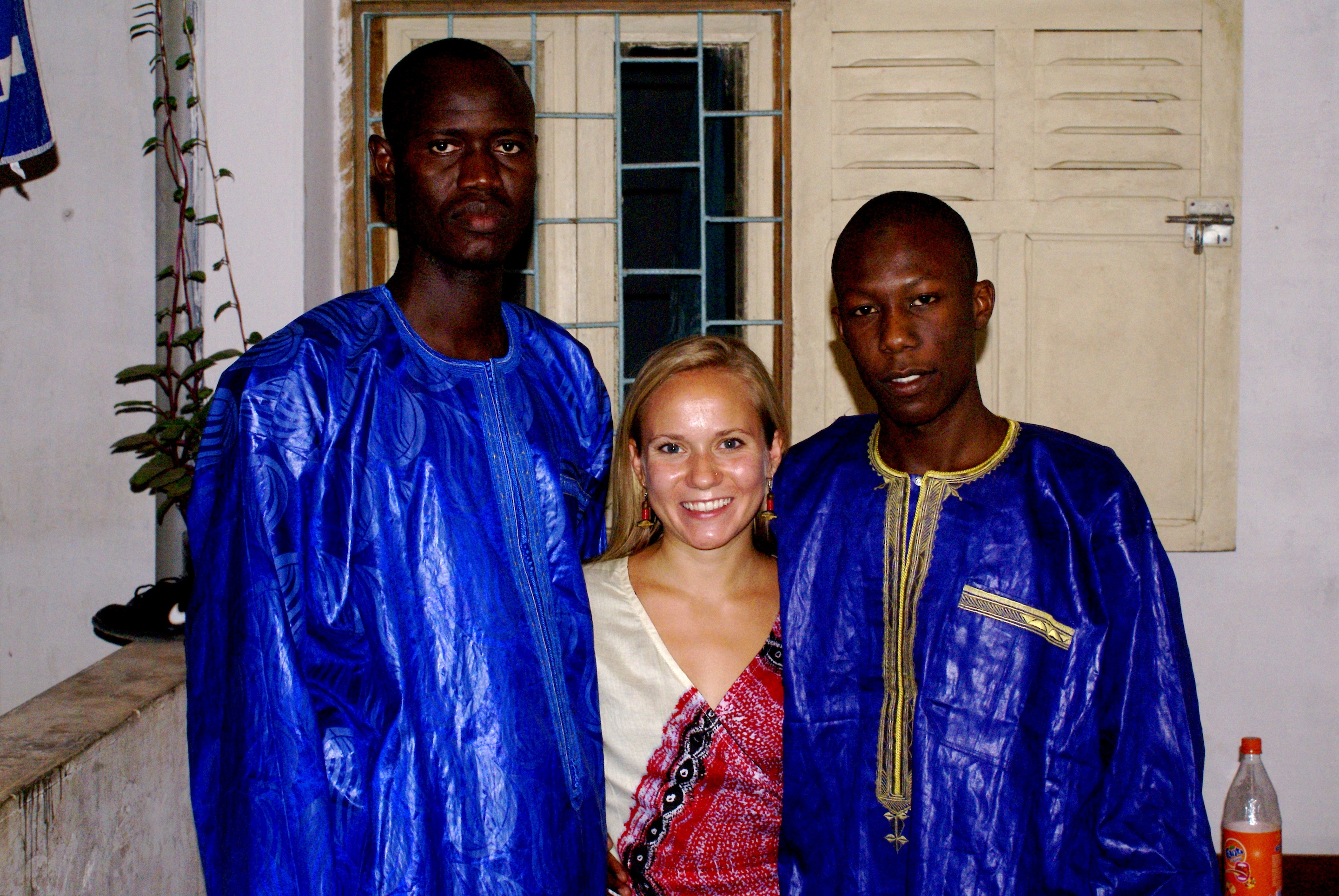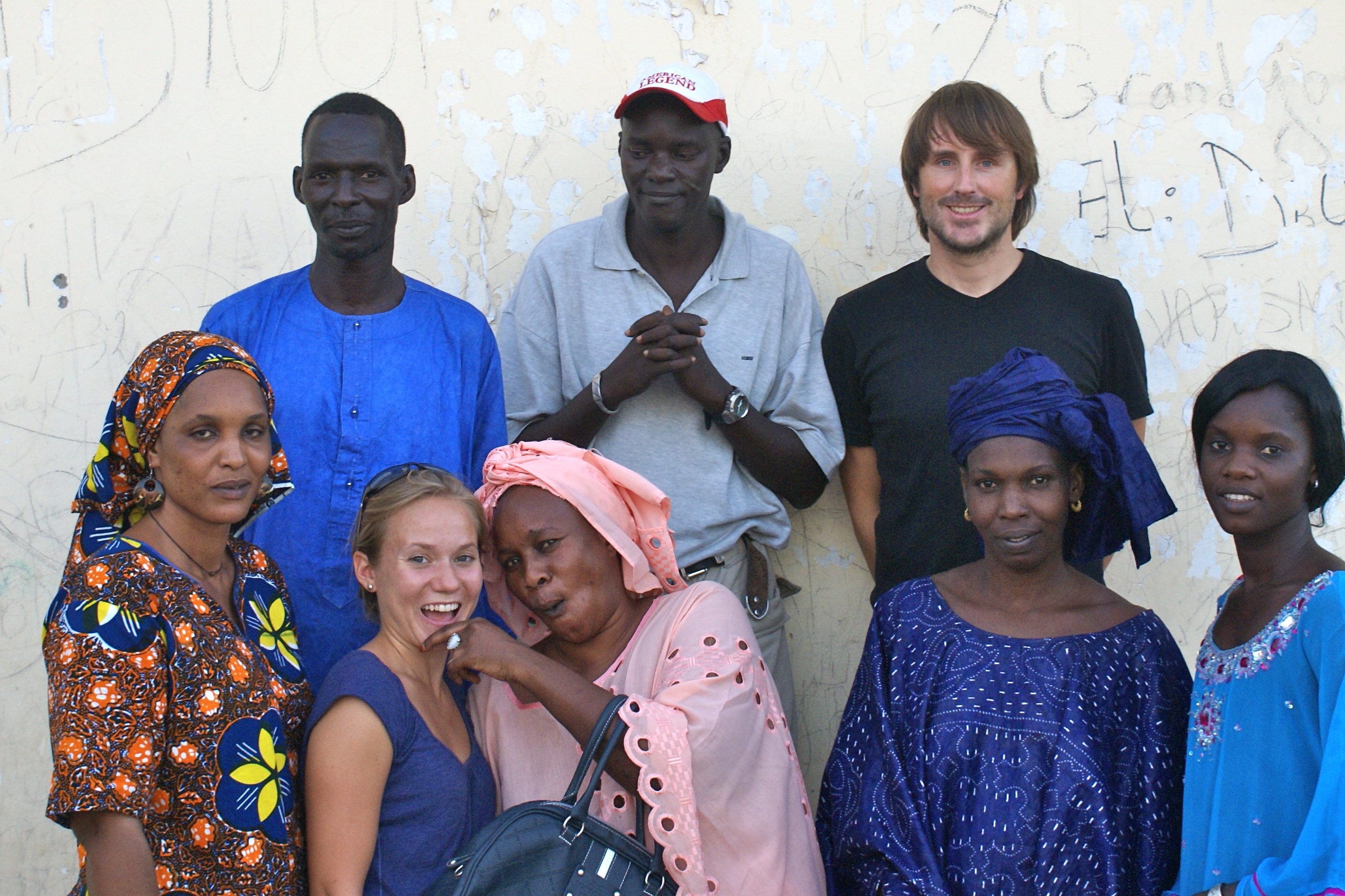Fulfilling my Passion for Africa
 Two of my Senegalese brothers and I pose for a photo in Mermoz before heading to the annual Fete de Mouton. Photo courtesy of Amy Rizzotto.
Two of my Senegalese brothers and I pose for a photo in Mermoz before heading to the annual Fete de Mouton. Photo courtesy of Amy Rizzotto.
Like many of my peers at the George Washington University, I was dedicated to the idea of studying abroad during my junior year. Hungry for a challenge, I decided to stray from the pack and avoid Europe altogether. Looking back, it’s hard to pinpoint the catalyst, but when it came time to apply there was only one place I wanted to go: Senegal.
And so, at the tender age of 20, I landed in Dakar.
It was in Senegal that I truly came into my own as a person. Being truly out of my element for the first time—tasting new food, experiencing a new culture, hearing unknown languages, and living with a host family—forced me to figure out who I was. So often our surroundings define us, and it’s easy to blend into our environment. There was no blending in for me in Senegal, that’s for sure!
Beyond the personal confidence and identity I found during my time in Senegal, I also fell in love with a continent and its quandaries. It was here that I decided that I wanted to be professionally invested in Africa. Many African economies are beginning to experience the kind of growth rates we have previously only associated with East Asia. The International Monetary Fund projects that Africa will continue to grow at a rate of 6% in 2012—on par with many rising economic players in Asia. (Incidentally, much of the recent burgeoning development in Africa has largely been fueled by investment from China.)
As someone who believes that development should be achieved in a socially sustainable and environmentally conscious manner, I do worry that there are some drawbacks to this type of growth. There are also the omnipresent effects of climate change—desertification and deforestation being two of the biggest threats. Africa is rich in natural resources and human capital, but still suffers from exploitation and avarice. Most African countries have been independent since the 1960s, but there are new powers pulling the purse strings that need to be kept under the international microscope.
 My research team and I in Mauritania, where we conducted a week-long consumer preference study on locally produced versus imported rice. Photo courtesy of Amy Rizzotto.
My research team and I in Mauritania, where we conducted a week-long consumer preference study on locally produced versus imported rice. Photo courtesy of Amy Rizzotto.
Five years after my first trip to Africa, I’ve landed an Afrocentric job with a dream organization, the African Wildlife Foundation (AWF). At AWF, I constantly encounter development and conservation paradigms like those I’ve already mentioned. Our biggest challenge as an organization, however, is to debunk the notion that conservation and development are diametrically opposed. Conservation is by definition the protection, preservation, and reclamation of natural ecosystems and the biodiversity they support. Development, meanwhile, is essentially taking concerted actions that will lead to economic growth and a raised standard of living. AWF has developed a unique conservation model wherein people are the most important agents in the conservation of their wildlife and wild lands.
Too many conservation organizations take people for granted in their programming—but AWF understands that its conservation goals are unattainable without community agency and buy-in. Our efforts focus heavily on capacity building and community empowerment. We seek to make conservation and development go hand in hand by ensuring that people benefit from our endeavors to protect Africa’s biodiversity. For example, we preserve the integrity of natural wildlife corridors, which are essential to the survival of migratory animals like the African elephant, wildebeest, and lion, but we also work with communities to develop conservation enterprises—such as high-end eco-lodges—that allow locals to gain an economic benefit from having this wildlife nearby. From Rwanda to Kenya to Zambia and elsewhere, we’ve created multiple such win–win situations for wildlife and people.
In addition to our efforts to address the complex human–wildlife dynamic, AWF is the only conservation organization that is solely focused on Africa. It is headquartered in Nairobi, Kenya, and upwards of 80% of our employees are native African. AWF has also been rated a four-star organization by Charity Navigator 10 years running—a feat fewer than 1% of nonprofit organizations can claim. These pride points make my job as a major gifts officer for AWF much easier. Fundraisers are only effective if they genuinely believe in the cause they represent, and my values couldn’t be better aligned with those of AWF.
This originally appeared on the Altruette Blog.